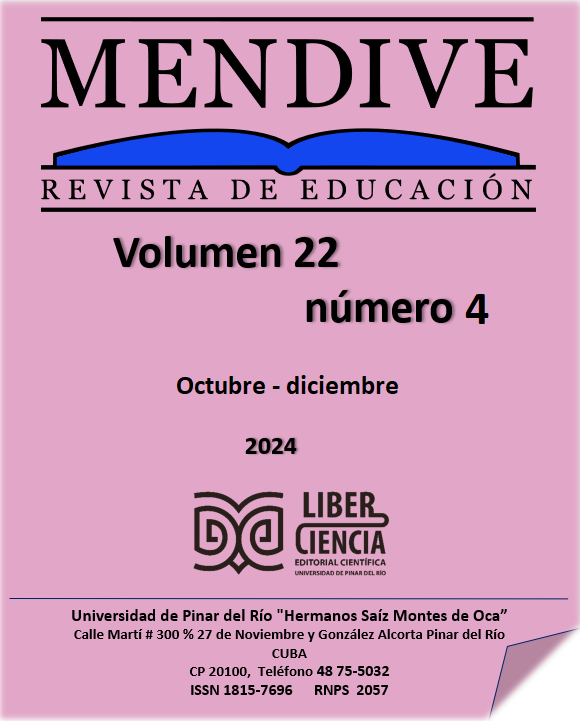Models, simulators and Software Engineering
Main Article Content
Abstract
An interdisciplinary approach is presented, linking models, simulators and software engineering. In particular from the Software Engineering are addressed and adapted agility issues and the SWEBOK knowledge guide. The methodology, for the achievement of the proposal deals with the exploration of literature and an adaptation of SCRUM to assist in the management of educational projects and contribute to the teaching-learning process. In addition, the practices developed in a degree subject are explicit with the aim of achieving meaningful learning, focused on students oriented to project-based learning. It is concluded that the SWEBOK guide provides areas of knowledge that are addressed from the modelling and simulation of systems, contributing to significant learning through the appropriation and integration of disciplinary knowledge. In the future, other areas of knowledge in Software Engineering that would be linked to the proposed approach in the subject will be identified and analyzed focusing on the profile of students.
Downloads
Article Details

This work is licensed under a Creative Commons Attribution-NonCommercial 4.0 International License.
References
Abran, A., Yurkov, A., Khalin, V. y Shilova, O. (2022). Quantitative analysis of informational significance of SWEBOK knowledge areas in IEEE/ACM curriculum guidelines. In System Analysis in Engineering and Control (pp. 561-573). Cham: Springer International Publishing. https://www.researchgate.net/publication/359998231_Quantitative_Analysis_of_Informational_Significance_of_SWEBOK_Knowledge_Areas_in_IEEEACM_Curriculum_Guidelines
Alenezi, M. y Akour, M. (2022). Methodical Software Testing Course in Higher Education. International Journal of Engineering Pedagogy, 12(1). https://www.researchgate.net/publication/358504537_Methodical_Software_Testing_Course_in_Higher_Education
Arias, M., Tomaselli, G. P. y Tortosa, N. (2021). Computación afectiva y agilidad en entornos virtuales de educación: una revisión sistemática de la literatura. VIII Simposio Argentino sobre Tecnología y Sociedad (STS 2021) - JAIIO 50 (Modalidad virtual). Argentina. https://www.sciencedirect.com/science/article/abs/pii/S0360131519302027
Botella Nicolás, A. M. y Ramos Ramos, P. (2020). La relación con los demás y la motivación en un Aprendizaje Basado en Proyectos. Estudios pedagógicos (Valdivia), 46(1), 145-160. https://dx.doi.org/10.4067/S0718-07052020000100145
Bourque, P. y Fairley, R. (2014). SWEBOK Guide to the Software Engineering Body of Knowledge, Version 3.0. IEEE Computer Society. https://www.computer.org/education/bodies-of-knowledge/software-engineering
Capuña y Uceda, O. E. y Antón Pérez, J. M. (2021). Influencia de SCRUM en los plazos de entrega y rendimiento en los proyectos de las asignaturas de Desarrollo de Software. Revista Iberoamericana de Tecnología en Educación y Educación en Tecnología, no. 29, 36-42. https://www.scielo.org.ar/scielo.php?script=sci_arttext&pid=S1850-99592021000200005
Hernández Sola, G. (2021). Nuestro análisis de la agilidad en 2021 a partir del 15th Annual State of Agile Report. https://www.Scrum.org/resources/blog/nuestro-analisis-de-la-agilidad-en-2021-partir-del-15th-annual-state-agile-report
Kamthan, P. y Washizaki, H. (2022). Educational and Professional Implications of SWEBOK. Proceedings of the 34th International Conference on Software Engineering and Knowledge Engineering. SEKE 2022. KSIR Virtual Conference Center Pittsburgh, USA. https://worldscientific.com/doi/10.1142/S0218194022500590
Romillo, A. y Polaino, C. (2019). Aplicación del Modelo de Gestión Pirámide del Desarrollo Universitario en la Universidad de Otavalo, Ecuador. Formación Universitaria, 12(1), 3-12. https://www.scielo.cl/scielo.php?script=sci_arttext&pid=S071850062019000100003
Ruiz de Mendarozqueta, A., Bustos, F. y Colla, P. (2022). Relationship between mature software engineering practices and agility practices. Electronic Journal of SADIO. 21(2). 79-109. https://sedici.unlp.edu.ar/bitstream/handle/10915/142904/Documento_completo.pdf-PDFA.pdf?sequence=1
Soriano, K., Rosero, P., Guzmán, J. y Nieves, Z. (2024). Implementación en el aprendizaje basado en proyectos (ABP) en la educación universitaria: impacto en la motivación y el rendimiento de los estudiantes. Revista Social Fronteriza. 4. e45456. https://www.revistasocialfronteriza.com/ojs/index.php /rev/article/view/475
Vila Grau, J. L. y Capuz-Rizo, S. (2021). La extensión de la agilidad al ámbito docente a través de Scrum & EduScrum. In 25th International Congress on Project Management and Engineering At: Alcoi (Spain). 1, 2276-2290, Project: PhD research Project of Juan Luis Vila Grau. http://dspace.aeipro.com/xmlui/handle/123456789/3047
Villanueva Morales, C., Ortega Sánchez, G. y Díaz Sepúlveda, L. (2022). Aprendizaje Basado en Proyectos: metodología para fortalecer tres habilidades transversales. Revista de estudios y experiencias en educación, 21(45), 433-445. https://doi.org/10.21703/0718-5162.v21.n45.2022.022


